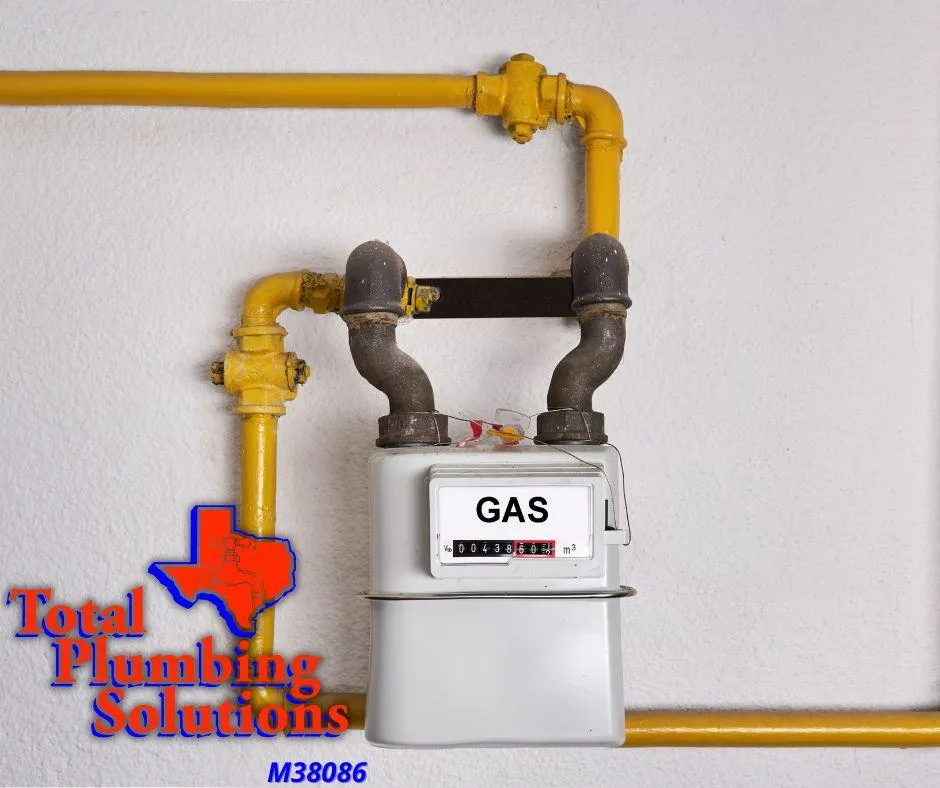
Gas Line Safety: What Every Property Owner Should Know
Gas Line Safety: What Every Property Owner Should Know
Natural gas provides efficient, economical energy for heating, cooking, and more—but it demands proper respect. At Total Plumbing Solutions, we prioritize gas line safety for all our Decatur and Wise County customers. Understanding the basics of gas safety can prevent dangerous situations and provide peace of mind for your family or business.
Understanding the Dangers
Natural gas itself is colorless and odorless. Utility companies add mercaptan—a chemical with a distinctive "rotten egg" smell—to help detect leaks. Even with this safety measure, gas leaks pose serious risks:
Fire and Explosion: Natural gas is highly flammable and can ignite from even small sparks.
Asphyxiation: Gas can displace oxygen in enclosed spaces, leading to suffocation.
Carbon Monoxide: Improperly functioning gas appliances can produce this odorless, deadly gas.
The National Fire Protection Association reports that natural gas leaks contribute to approximately 4,200 home fires annually. Many of these incidents could be prevented with proper inspection and maintenance.
Warning Signs of Gas Line Problems
Be vigilant for these indicators of potential gas line issues:
The smell of sulfur or rotten eggs (the mercaptan odor)
Hissing or whistling sounds near gas lines or appliances
Bubbles in standing water near gas line areas
Dead or discolored vegetation around gas line paths
Physical symptoms like dizziness, nausea, or fatigue when in the building
Higher than normal gas bills without increased usage
Visible damage to gas pipes or connections
Immediate Actions for Suspected Gas Leaks
If you suspect a gas leak, take these steps immediately:
Don't create flames or sparks. Don't flip light switches, use phones, or start vehicles.
Evacuate everyone from the building immediately.
Call emergency services and your gas company from a safe distance.
Don't return to the building until professionals declare it safe.
Contact Total Plumbing Solutions for professional inspection and repair once the immediate danger has passed.
Professional Gas Line Services
For safety reasons, gas line work should never be a DIY project. Our licensed professionals provide comprehensive gas line services:
Inspection and Testing
Regular inspections can identify potential issues before they become dangerous:
Visual inspections to identify corrosion, improper connections, or damage
Pressure testing to detect even the smallest leaks
Gas appliance inspection to ensure proper operation and ventilation
Code compliance evaluation to verify your system meets current safety standards
Installation and Replacement
When you need new gas lines or replacing aging infrastructure, our team ensures:
Proper sizing for your specific needs and appliances
Quality materials that meet or exceed code requirements
Professional installation with rigorous testing
Correct permits and documentation filed with appropriate authorities
Repair and Maintenance
Our repair services address common gas line issues:
Leak repair using approved methods and materials
Connection tightening to eliminate potential leak points
Valve replacement when wear or damage is present
Pipe replacement for corroded or damaged sections
Gas Line Materials: What You Should Know
Modern gas lines utilize several materials, each with advantages:
Black Iron Pipe: Traditional, durable material for indoor gas lines
Corrugated Stainless Steel Tubing (CSST): Flexible, easier to route through buildings
Polyethylene (PE): Used primarily for underground outdoor lines
Copper: Used in some localities, though less common today
Each material has specific installation requirements and lifespans. Our technicians can explain which options are best for your property.
Gas Line Lifespan and Replacement
Gas lines don't last forever. Factors affecting lifespan include:
Material: Different pipe materials have different expected lifespans
Installation quality: Properly installed lines last longer
Environmental conditions: Moisture, soil conditions, and temperature fluctuations impact longevity
Usage patterns: Heavy use can accelerate wear
Generally, gas lines should be professionally evaluated:
Every 5-7 years for older systems
Following any renovations or ground disturbances
Before purchasing a property
When adding new gas appliances
Gas Appliance Connections
Proper connections to gas appliances are critical safety points:
Flexible connectors should be inspected annually for wear or damage
Shut-off valves should be accessible and operational
Connections should be leak-free and properly sized
Ventilation must meet specifications for each appliance type
The Total Plumbing Solutions Approach to Gas Safety
Our gas line services follow a rigorous protocol:
Comprehensive Evaluation: We thoroughly inspect existing systems before any work.
Clear Communication: We explain all findings, options, and recommendations.
Quality Materials: We use only code-approved materials appropriate for each application.
Meticulous Installation: Our technicians follow established safety procedures during all work.
Thorough Testing: We test all new installations and repairs using industry-standard methods.
Complete Documentation: We provide records of all work performed for your records.
Protect Your Property with Professional Gas Services
Don't take chances with gas line safety. Contact Total Plumbing Solutions at (940) 627-4445 to schedule an inspection, testing, or to discuss any gas line concerns.
Our licensed, experienced technicians serve residential and commercial properties throughout Decatur and Wise County, providing the professional service you need for gas line safety and peace of mind.
